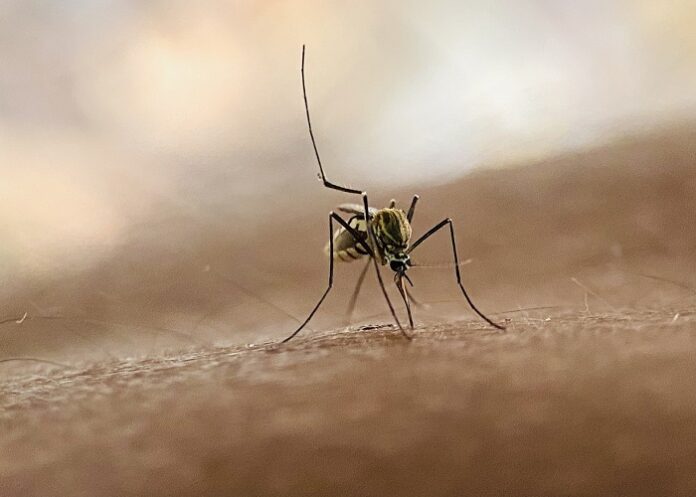A group of 28 leading scientists from 10 countries has warned that millions of lives are at risk unless urgent and radical action is taken to stop drug-resistant malaria spreading in Africa.
In an article published in the journal Science, they appealed for action from global funders and stakeholders, reports BBC.
Malaria parasites that can shrug off the effects of the critical drug artemisinin are now well-established in East Africa.
Resistance levels have soared in some areas from fewer than 1% to more than 20% of cases in the space of three years. The last time there was a resistance to an antimalarial spread in Africa, it led to a tripling in the number of children dying.
Artemisinin kills the malaria parasite and is the cornerstone of treatment.
Parasites that could resist artemisinin evolved for the first time in Africa in Rwanda, and then separately in Uganda and Eritrea. These resistant parasites have spread within their countries and across borders.
Now, more than 10% of malaria cases are caused by resistant parasites in Ethiopia, Eritrea, Rwanda, Uganda and Tanzania.
“Now is the time to act before millions of people die due to increasingly ineffective anti-malarial treatments,” said Professor Olugbenga Mokuolu, from the department of paediatrics at the University of Ilorin in Nigeria.
In 2016, resistant strains were hardly being detected in northern Uganda. By 2019, more than 20% of parasites tested were resistant in several regions.
The scientists say the further spread of these resistant parasites is “inexorable”.
Dr Mehul Dhorda, from the Mahidol Oxford Tropical Medicine Research Unit in Thailand, said it was still uncertain how quickly that would happen, but that
something similar has already happening in South East Asia, where artemisinin-based treatments have started to fail.
“The time from first detection to when it was overwhelmingly prevalent was 10 to 15 years,” he said.
Lessons from history
A similar story has happened before. The parasite became resistant to a previous drug, chloroquine, in East Africa in the 1970s, and resistance reached the West Coast by the 1980s.
Malaria deaths on the continent trebled from about 493 000 in 1980 to 1.6m by 2004.
“I’m hoping this is not something we will see in Africa,” said Dhorda. “If artemisinin combination therapy starts failing, then cases and deaths will go up.”
The authors have made a series of recommendations targeting both the parasite and the mosquitoes that spread the disease.
They suggest adding a third drug to the artemisinin combination therapy to make it harder for the parasite to evolve resistance to therapy.
Dhorda says this will cost money. “We might spend a little more now, but if not, we’ll be spending a lot more to control the fire rather than putting it out before it became widespread.”
The group also calls for:
• Expanded coverage of insecticide-treated bed nets and long-acting insecticides to be sprayed in people’s homes
• Targeting the newly developed malaria vaccines to people of all ages (rather than just children) in areas with artemisinin-resistant malaria
• Supporting community health workers, so treatment is available closer to everyone’s home
• Ensuring data on the spread of resistant strains is shared rapidly, because at the moment there can be long delays
“We ask funders, specifically the Global Fund to Fight Aids, Tuberculosis and Malaria and the US government’s President’s Malaria Initiative, to be visionary and to step up funding for malaria control and elimination programmes to contain the spread of artemisinin resistance in Africa,” said Ntuli Kapologwe, director of preventive services at the Ministry of Health in Tanzania.
Study details
Artemisinin-resistant malaria in Africa demands urgent action
Mehul Dhorda, Akira Kaneko, Ryuichi Komatsu, Lorenz Von Seidlein et al.
Published in Science on 18 July 2024
Abstract
Artemisinin derivatives are the cornerstone of current antimalarial treatment, both for severe malaria (injectable artesunate) and uncomplicated malaria [artemisinin combination therapy (ACT)]. Although a large but poorly defined proportion of malaria infections remains undiagnosed, about 249m uncomplicated cases were estimated worldwide in 2022, of which roughly 65% were treated with ACTs. Of these cases, 233 million (94%) occurred in Africa (1), where >70% of uncomplicated falciparum malaria cases are now treated with the ACT artemether-lumefantrine (AL). Unfortunately, artemisinin resistance (ART-R) has emerged in multiple locations in Africa, compromising the efficacy of ACTs. In the past, the spread of antimalarial resistance resulted in millions of avoidable deaths. Without radical action, this history will repeat itself. Success in containing ART-R in the Greater Mekong Subregion in Asia, where ART-R was first reported in 2008, suggests that a multipronged approach is needed in East Africa to reduce and interrupt malaria transmission permanently.
Science article – Artemisinin-resistant malaria in Africa demands urgent action (Open access)
BBC News article – Urgent action needed as malaria resists key drug (Open access)
See more from MedicalBrief archives:
WHO warns that world could lose malaria fight as cases rise
WHO’s second malaria vaccine will save millions of lives
Chemical path through malaria drug resistance
New malaria jab also reduces other fatalities

